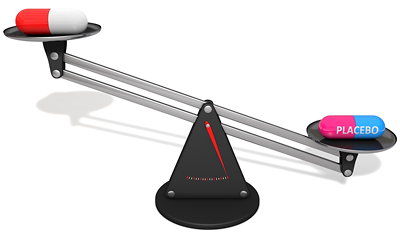Prior Antidepressant Use Has Impact on Clinical Trial Outcomes
Abstract
Prior use of antidepressants has more pronounced effects on placebo responses compared with active drugs, thus increasing the difference in response rates between these two groups.
Many factors can affect the signal-to-noise ratio in clinical trials comparing an antidepressant medication with a placebo. For example, studies have shown that trial participants with previous antidepressant use tend to have lower responses to subsequent treatments, though the reasons for this phenomenon are not fully clear.

People with a history of antidepressant use show a greater difference in how they respond to active drugs versus placebos in clinical research studies.
A new randomized trial from researchers at the University of California, Los Angeles (UCLA), suggests that, while true, the above example doesn’t tell the entire story. They found that in addition to lower treatment response, prior antidepressant use also contributes significantly to a lower placebo response, such that the separation between the response rates for active drug and placebo is actually greater among this segment of clinical study participants.
This study, published in the October Psychopharmacology, involved 69 patients with depression who were part of a larger UCLA clinical trial exploring the predictors of response to medication, supportive care, or placebo for depression. Of this group, 39 of the patients were taking medication (venlafaxine, duloxetine, or escitalopram) and 30 patients were on placebo.
When all the patients who completed the eight-week trial were taken into consideration, the medication and placebo response rates did not show much difference (53 percent and 42.3 percent, respectively). When just the 37 participants with prior antidepressant history were taken into consideration, the medication and placebo response rates were 52.4 percent and 25 percent, respectively.
As in prior studies, the patients with a prior history of antidepressant use had on average less clinical improvement than antidepressant-naïve patients as measured by the Hamilton Rating Scale for Depression, and the differences were particularly prominent in the placebo arm (61 percent improvement for antidepressant-naïve patients and only 28 percent improvement for prior-history patients).
What makes the findings compelling, noted lead author Aimee Hunter, Ph.D., associate director of the Laboratory of Brain, Behavior, and Pharmacology at UCLA’s Semel Institute for Neuroscience and Human Behavior, is that the study considered other factors that might be shared among people who are not medication naïve.
“We found that the severity of patients’ depression, how well they responded to prior courses of treatment, and their expectations of experiencing symptom improvement during the present trial do not explain the greater drug-placebo separation.”
If those factors are not significant, it is difficult to explain the treatment-history effect, Hunter told Psychiatric News. “One possible alternative explanation, though speculative, is the idea that in anticipation of drug effects, the body triggers a neurophysiological response to counter these effects in subjects who have previously been exposed to medication,” she said.
In a case in which someone received an active drug, the counter response would balance out the medication, resulting in reduced potency. If the person received placebo, the changes would be more drastic, as there would be no active effect from the medication to counter the neurophysiological response.
Whatever the underlying cause, Hunter believes the study does have clinical implications, as treatment history is not a major exclusion factor in antidepressant studies. “These results suggest that treatment history should be routinely assessed in randomized clinical trials, and a trial that includes both treatment-naïve and treatment-experienced subjects should consider stratifying the results on this variable,” she said.
“It also raises some interesting questions related to drug regulation,” she continued. “It might be that down the road some antidepressants might be approved only to medication-experienced patients or that labels should be updated to consider both classes of patients. It is an issue that deserves consideration.”
Hunter’s study was supported by a grant from the National Institutes of Health. ■



